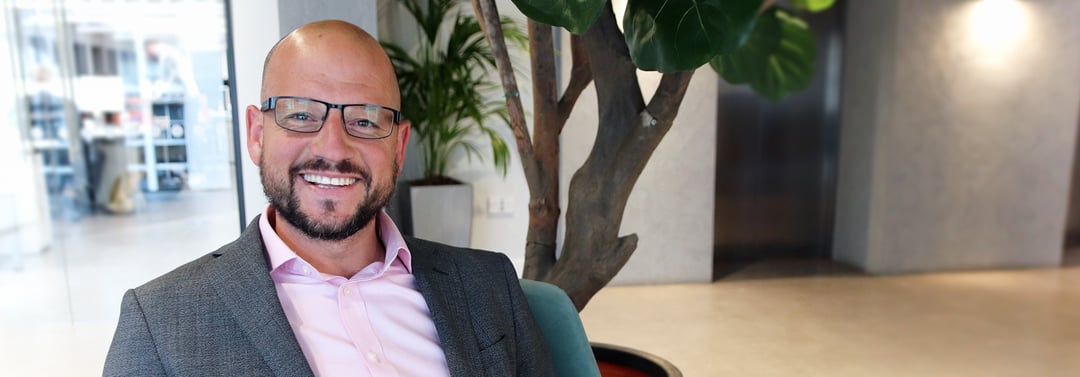How to be inclusive during Ramadan
Posted in: Diversity & Inclusion
Read Time: 3 Min Read

We spend so much of our lives at work, so naturally, we end up knowing so much about our colleagues. I am no exception, and for 11 out of 12 months, I’m known for many things including my work, my client relationship management style, my feminism, my favourite books, restaurants and places to visit.
However, during the month of Ramadan, I often become ‘the Muslim’ in the office, meaning I become ‘the other’. After recent conversations with Muslim friends, I realised I’m not alone in this.
To say the last 12 months have been difficult would be an understatement, and for Muslims, it is no different. This will be the second Ramadan during a global pandemic. A month that is built around community, communal Iftars, and checking in on elders, friends and family will be spent in isolation.
Fasting is going to be more challenging this year due to Covid-19; without the added anxiety of ‘what will my manager think!’, ‘Is this going to affect my career?’, ‘Are they going to judge me?’.
I know that many of my clients are passionate about mental health and creating an inclusive environment for their people, and I’m sure you are too. So to help you support your Muslim colleagues during this time, I wanted to write this short guide to give you everything that you need to know about the month of Ramadan.
What is Ramadan and who observes it?
Ramadan is a holy month for Muslims worldwide. During this month, some Muslims fast from dawn till sunset; and break their fast with a meal called Iftar, which literally means ‘break-fast’.
When is Ramadan?
Ramadan is the ninth month of the lunar year. This year Ramadan begins on April 12 and ends on May 12
Why do Muslims practice Ramadan?
- Spirituality – The aim of Ramadan is to reduce consumption and take a step back from the day-to-day; allowing time to pause and reflect on things to improve within. By refraining from food, you are refraining from life’s pleasures, allowing us to feel gratitude for the small things we take for granted, like running tap water.
- Community – Ramadan isn’t an indication of how religious someone is. It is a month-long festival that’s embedded in many cultures. Islam extends over many continents, and each Muslim ethnic group has their own way of celebrating traditional customs and cuisines. However, everyone breaks their fast at the same time (sunset) encouraging a sense of community and friendship.
What happens at the end of Ramadan?
There is a big celebration called Eid-al-Fitr which literally translates to ‘the festival of breaking fast’. Eid begins with communal prayer and giving charity. People wear their best clothes to meet and greet each other. Family and friends exchange gifts and celebrate by eating together.
How can you support your Muslim colleagues during Ramadan?
- Being aware of the holiday and asking if they observe Ramadan. Fasting is only observed by Muslims who can. Many are exempt due to mental or physical health, and some choose not to participate, so best not to assume.
- If they are fasting, ask if there is anything you can do to support. This is particularly important if you are a manager, or in a leadership position. Fasting is a very personal thing, and while your colleague may not need any support, they will be grateful you asked.
- Is it possible to alter working hours for those fasting? Lockdowns have altered the way we work and the typical 9-5 mindset. Some who are fasting might find themselves more productive if they do 11- 7 for example. This allows for more sleep; improving productivity and providing a distraction for when hunger really strikes.
- Being considerate of meeting times. Some feel it would be helpful to avoid first thing in the morning (especially if they have altered hours), or towards the end of the day.
- Menstruating women are exempt from fasting. This may be the reason why you see someone eating one day and fasting the next. It is totally normal, so let’s not make it weird!
- Best to avoid ‘Can I tempt you?’ jokes, or patronising questions like ‘not even water?’ but equally, it’s okay if you realise you’re having a cup of tea midway through a Zoom meeting with a fasting colleague. No need to apologise profusely. We will not faint at the sight of a cuppa or a biscuit 😊.
- Reading up on it, normalising it, and wishing your colleagues a Happy Ramadan or Ramadan Mubarak.
So here we are, my guide to supporting Muslim colleagues, clients and friends throughout the month of Ramadan.
To all my Muslim colleagues and the Muslim community, I wish you a Ramadan Mubarak.
If you have any questions about Ramadan or what you can do to support your colleagues; feel free to get in touch.
Recent
- Driving Transformation Success in Financial Services: The Critical Role of Programme Management in 2025
- The Future of Programme Management: Trends and Technologies to Watch in 2025
- The Evolution of Wealth Management: Driving Client Engagement and Industry Transformation
- Preparing for legislation changes in 2025 - Albany Beck’s Change Management Solutions Breakfast Roundtable
More Like This
 Diversity & Inclusion
Diversity & Inclusion
Lent vs. Ramadan: Comparing Two of the World's Most Important Religious Observances
Religion is an integral part of the lives of many people worldwide, and two of the most widely observed religious observances are Lent and Ramadan.
Living with Anxiety: My Personal Journey and Coping Strategies
For Mental Health Awareness Month, we have invited our Managing Partner, Phillip Wood, to share his experience dealing with anxiety. Mental health is a topic that affects us all, and we believe in fostering open conversations to reduce the stigma surrounding it. By sharing his story, Phillip aims to provide insights into managing anxiety and inspire others on their own mental health journeys. Below we explore Phillip Wood's personal account, gain valuable perspectives, and work towards a more compassionate world where mental health is prioritized. Let's make a difference together. Insights
Insights